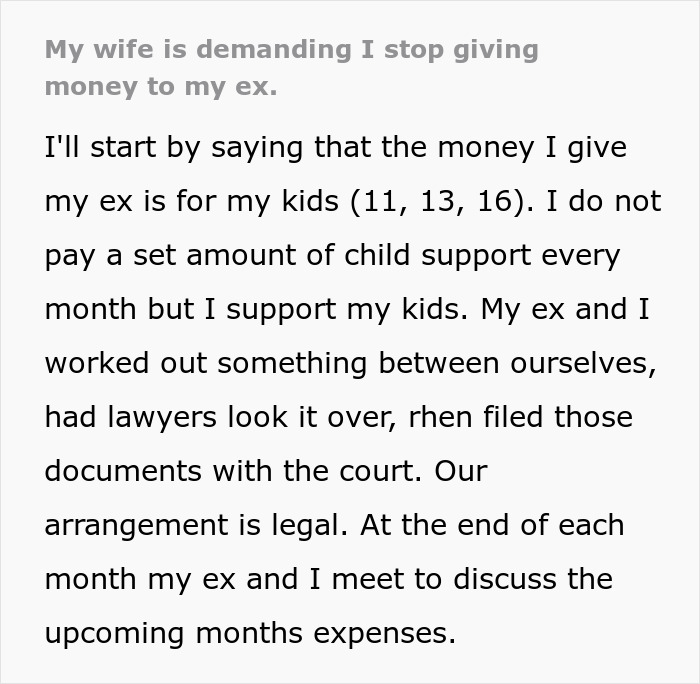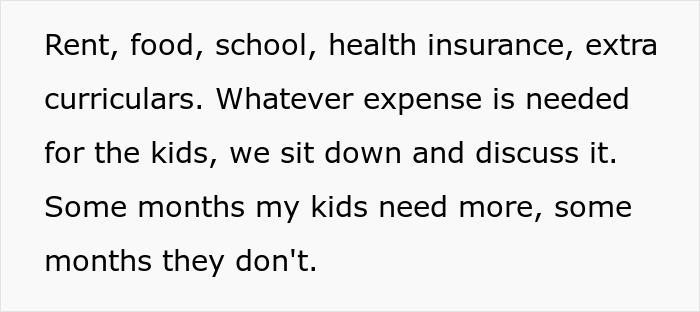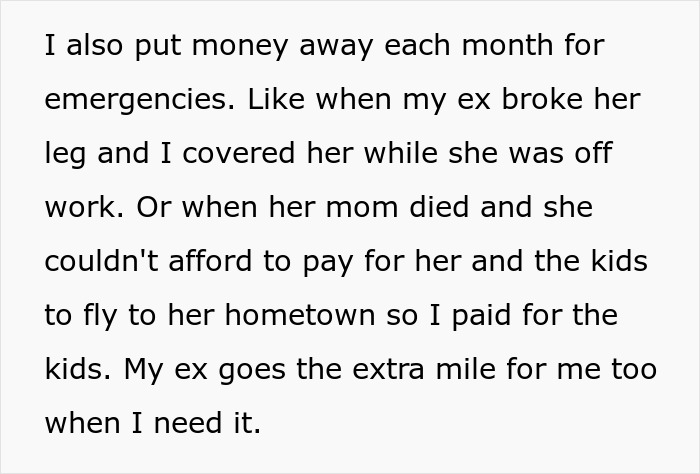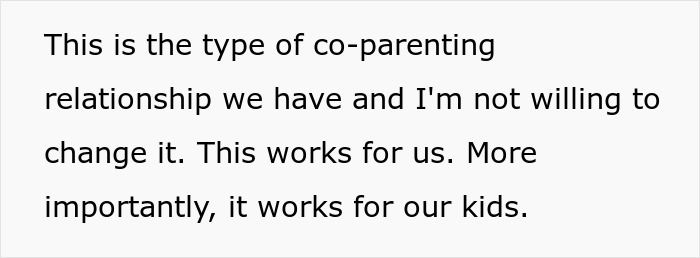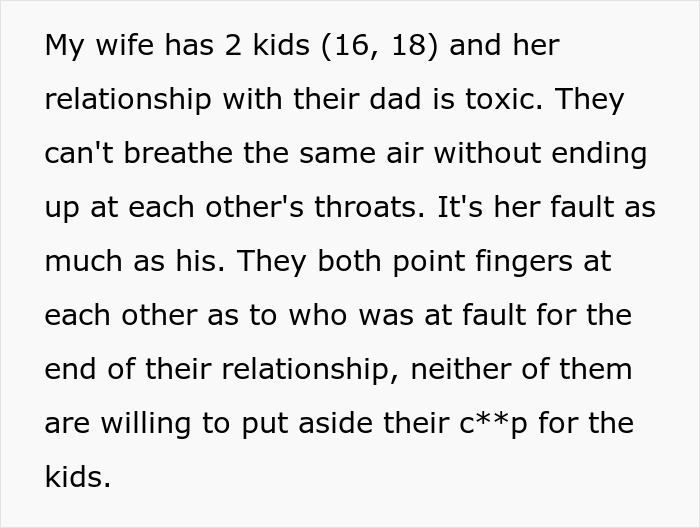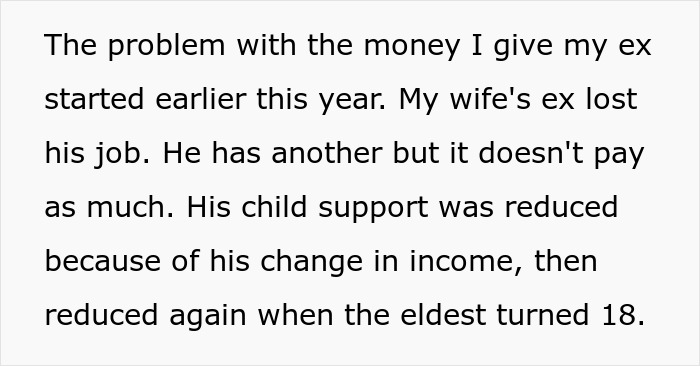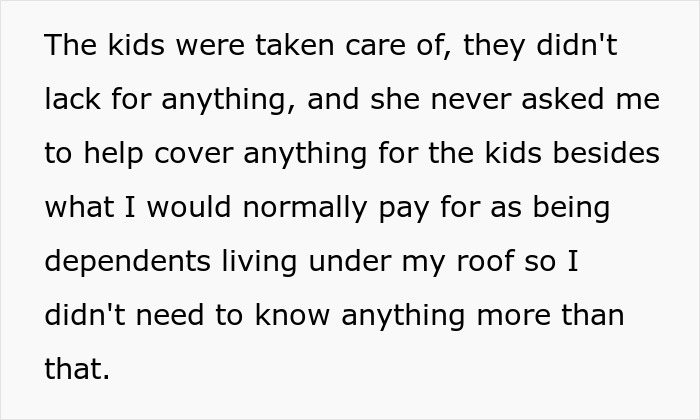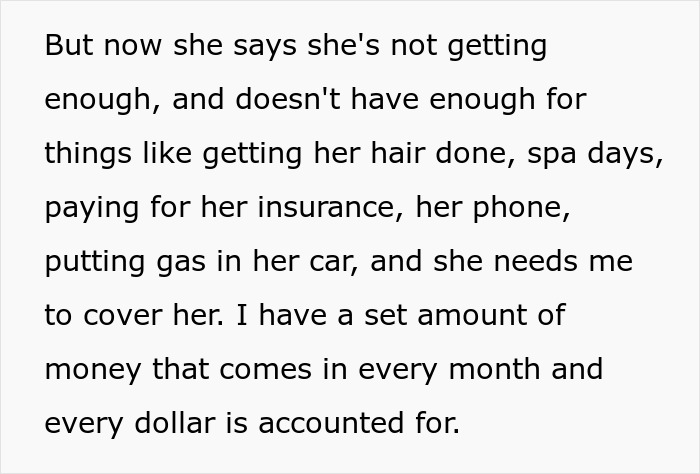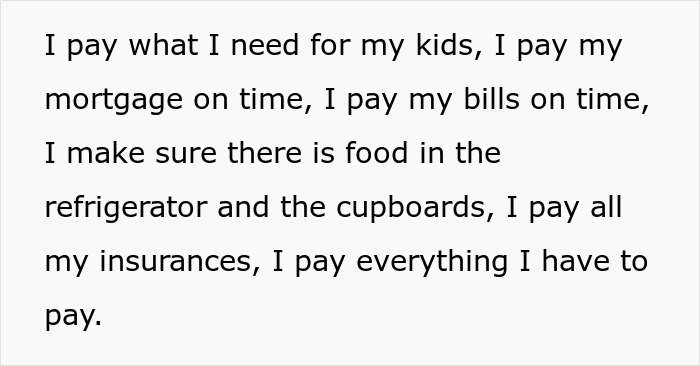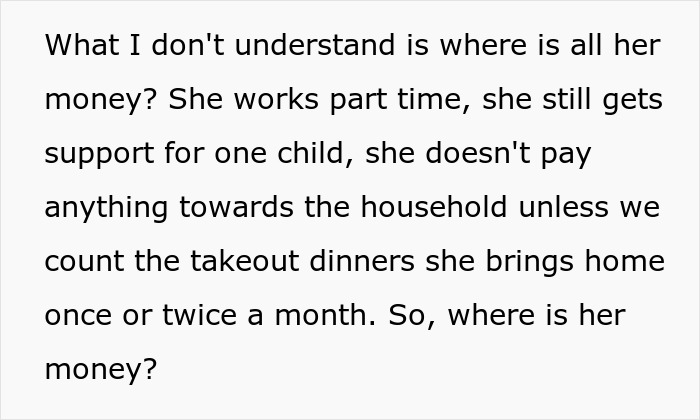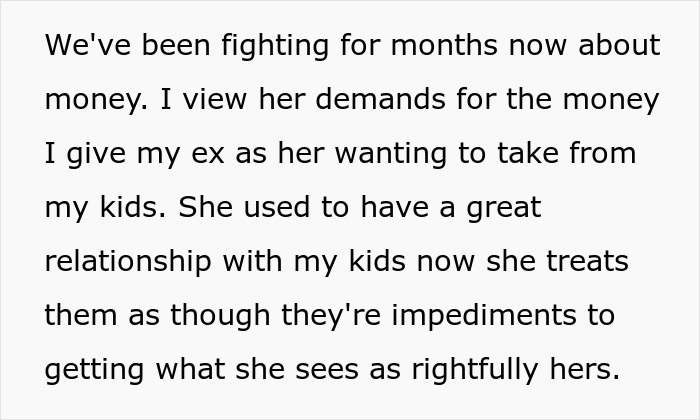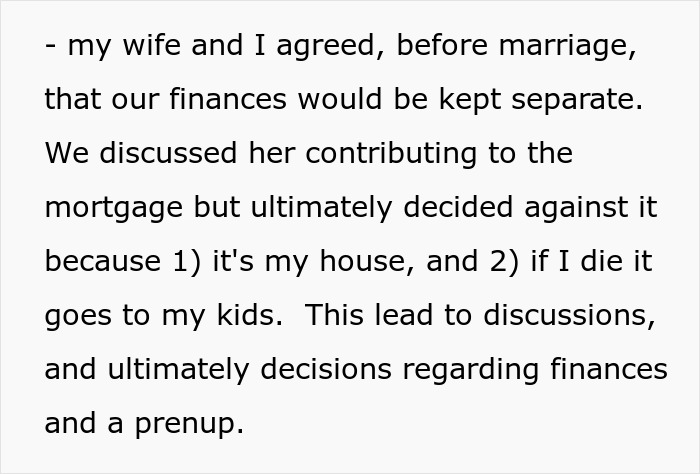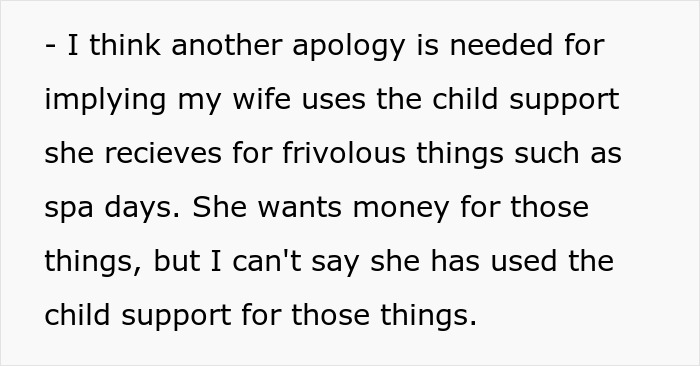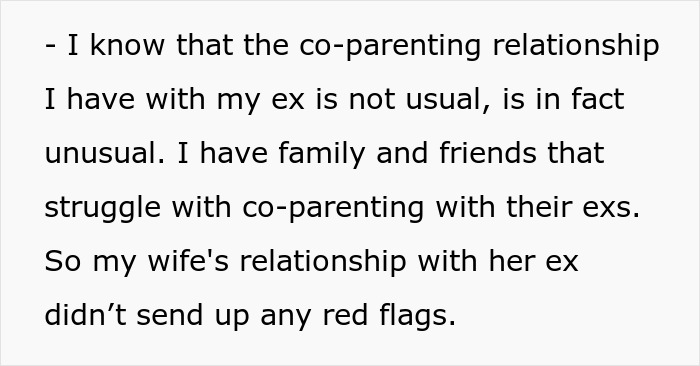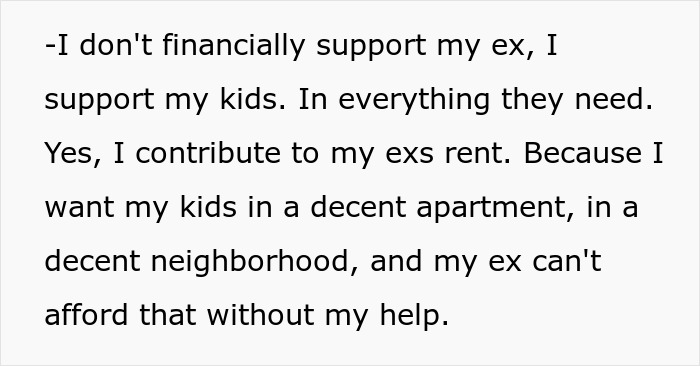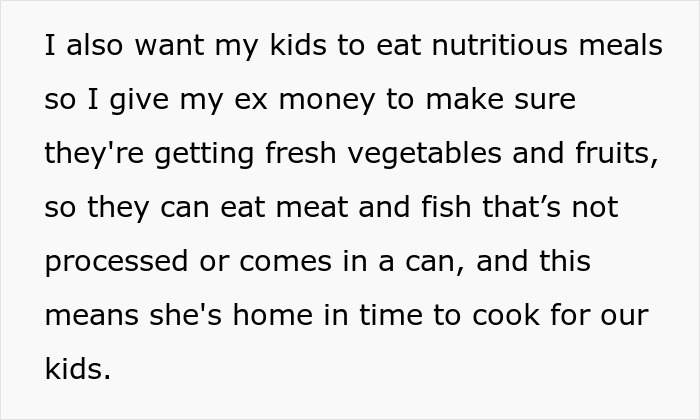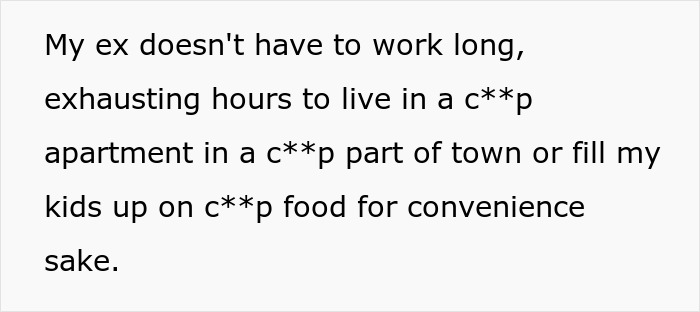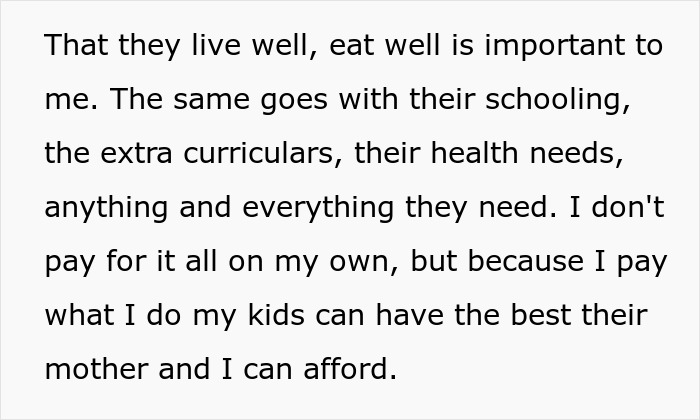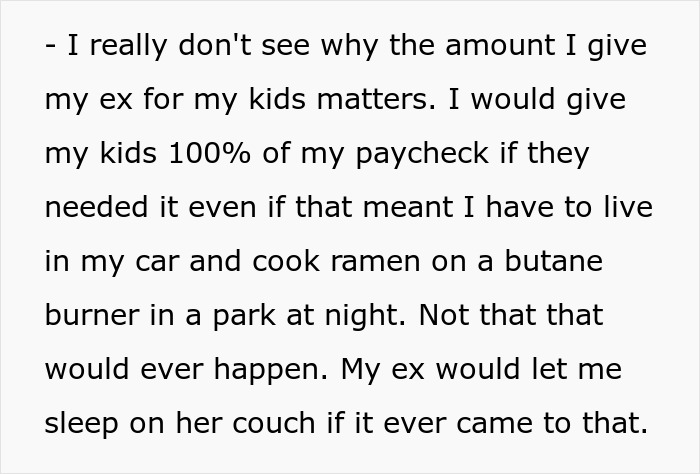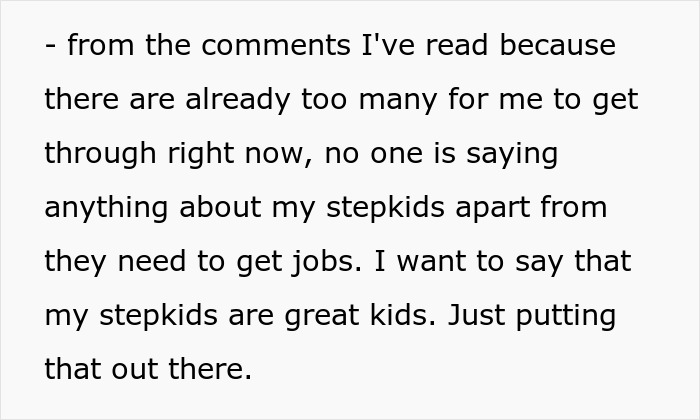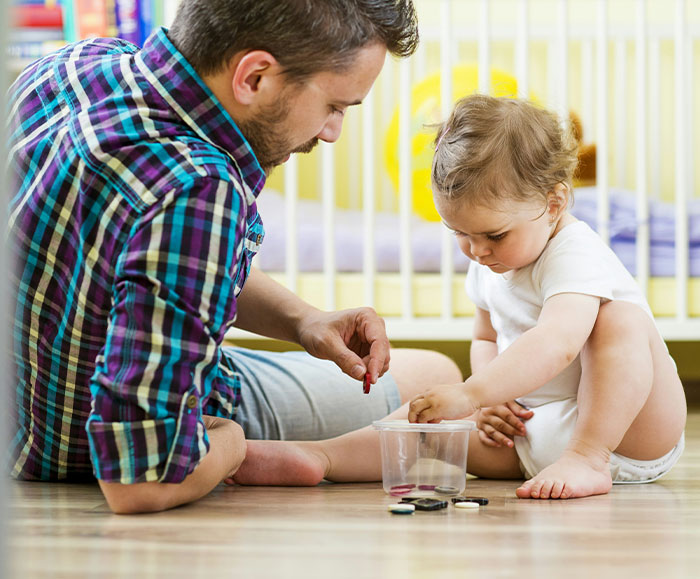Divorced parents are increasingly embracing the concept of co-parenting. Instead of taking care of their children separately with minimal communication, like in parallel parenting, they’re working like a team, participating in children’s lives, making decisions, and sharing responsibilities together. This approach to parenting after separation might not be for everyone but it helps to provide a stable and supportive environment for the children.
For this divorced couple, co-parenting was going great. They supported each other and helped out whenever they could. However, their arrangement became a problem when the father’s current wife started demanding money from him, which he used to support his children. This didn’t sit right with him and he refused, sparking quite the fight.
Scroll down to find the full story and a conversation with Jen Kiss, certified parent coach, who kindly agreed to share a few insights on the situation.
Co-parenting is a great way to provide children with a stable and supportive environment
Image credits: Getty Images (not the actual photo)
Unfortunately, this wife had a problem with her husband’s co-parenting arrangement since he couldn’t give her money to treat herself
Image credits: Daniele La Rosa Messina (not the actual photo)
Image credits: Brock Wegner (not the actual photo)
The husband answered questions readers had in an update
Image credits: Natalia Blauth (not the actual photo)
Image source: Practical-Wind-5594
Parents are choosing co-parenting more often than not these days, as they want to be fully involved in raising their children
Image credits: Getty Images (not the actual photo)
Certified parent coach Jen Kiss says that co-parenting isn’t a new concept but parents are choosing it more often than not these days, as they want to be fully involved in raising their children and making decisions.
“It is essentially the practice of both parents actively participating in the raising of their children when divorced or separated,” she explains. However, it can be challenging for a lot of parents because it requires good communication and a willingness to compromise and put the children’s needs first.
“And because you are separated or divorced for a reason, communication and navigating disagreements can sometimes feel overwhelming, frustrating and unproductive,” Kiss says.
If co-parents entering the agreement are prepared to maintain good communication and smooth teamwork, the kids can benefit from it by experiencing less conflict and trauma, which makes such a difficult transition easier for everyone.
“Co-parenting also allows both parents to be actively involved in their children’s lives, which reinforces stability and feelings of safety. Good co-parenting also allows for decisions to be made without having to go back to mediation or court, which can be time-consuming and costly,” Kiss adds.
However, rarely does parenting come without challenges. One of them that parents might face is not always being able to give what they feel is the best for their child.
“Co-parenting requires you to make compromises and that can feel challenging because most parents are trying to do their best for their child, but it does not mean that every parent’s idea for what is ‘best’ is the same. And sometimes co-parents struggle with left-over hurt and other emotions that cloud their judgment when making decisions involving their children,” Kiss explains.
The expert believes the husband is doing a good job at establishing boundaries for both relationships he is in
Image credits: Getty Images (not the actual photo)
When a new relationship enters the arrangement, it can also make it more complicated. “There are many times when parents use different parenting styles or parenting techniques, which can naturally lead to more conflict in the co-parenting relationship. In almost all cases, though, co-parenting in some form is recommended for families,” says Kiss.
Once a new significant other comes into the picture, they have to understand that they’re not a part of the co-parenting relationship, she says. “While they may be a stepparent, that only grants them responsibility over the kids, not authority. And that includes the authority for how child support decisions are made and how money is spent in relation to the kids.”
It’s not uncommon for a new and ex-partner to clash as a new family is created and things may not flow as smoothly with the current co-parenting arrangement in place. But if the previous order was working well, it shouldn’t be changed, suggests the parenting coach.
When it comes to original poster’s situation, the expert says that the husband is doing a good job at holding boundaries for both relationships he is in. “He is practicing good co-parenting because he is demonstrating open communication and flexibility with his ex while putting his children’s needs as the deciding factor in his decisions,” Kiss says.
“His new partner may not agree with the arrangement, but ultimately she does not get a voice in that arrangement. While I would always advise the new partner and husband to have an open conversation about co-parenting arrangements and any concerns, the decision ultimately lies with the husband in this case,” she concludes.
Most readers were with the husband on this one
However, some thought he cared about the co-parent more than his current wife
Thanks! Check out the results:
[ad_2]
Source link
























